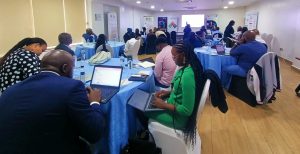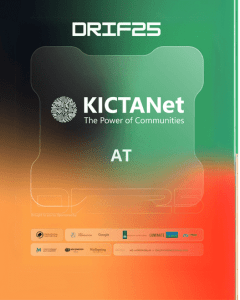The most dangerous form of quackery is institutionalized quackery. This happens when the following practices become pervasive:
1. Grades for sale / barter;
2. A culture of academic cheating / plagiarism / cronyism;
3. Academic Sophistry (using twisted sentences, jargon and fallacies to obfuscate useless garbage in fake dissertations);
4. Disconnect between choice of research topics (or academic focus) v/s the real-world needs of the country;
5. A pervasive belief that a certificate (not real-world practice) is the indisputable authority on level of competence and/or ability;
6. Due to 5, a pervasive belief in academia, and society, that the main goal of education is to “get the papers”;
7. The likelihood that thesis supervisors themselves are products of a broken system – thus (un)wittingly spreading institutionalized quackery;8. Lack of commitment to solving real-world problems which are perceived as lacking “academic flavor”;9. Mindless pedantry.
Visit KIPI and check the number of approved patents – then compare against the number of claimed inventions in our universities. Our universities don’t seem capable of challenging ridiculous claims of novelty (despite the implications on institutional credibility) and this has led to a total mockery of words like “invention” and/or “innovation”.
One may argue that perhaps the universities don’t want to patent their inventions in favor of academic progress – but that would be a major indictment on their real-world judgment/reasoning – given their well publicized cash strapped condition and heavy dependency on taxpayer subsidies. There are many types of conditional releases that allow for realization of IP revenues without stifling academic research. If our universities have a real IP resource, why are they not monetizing it???? This is intellectual madness.
Contrast with Stanford, for example, which earns > Ksh, 4.5 Billion annually from licensing royalties (>800 patents). Their Alumini have helped created high value global companies – which have transformed the world and achieved staggering valuations (e.g. Google, Linkedin, eBay, Cisco, Dolby, HP, Instagram, NVIDIA, Sun, Yahoo! etc – with a cumulative value in excess of Ksh. 1,000 Trillion (yes, Ksh. 1 Sextillon) – enough value to run our country tax free on >Ksh 6 Trillion budget for ~150 years!).
Intellectual Property can generate more value (while being far easier to commercialize) than oil / gas / minerals. Why is our government not obsessed with commercializing indigenous IP?
The people in charge of Kenya’s tertiary education don’t seem to have an idea of the scale of economic potential that they are sitting on (and how to unlock it). Observe the ongoing US v/s China technology dominance “war” for example – these countries understand the link between indigenous innovation and economic progress and it is no surprise that they are world’s top two economies.
Instead of Academic PhDs Kenya should issue Honorary PhDs for real-world achievements in advancing the nation – and the prestige of such doctorates should be higher than that of academic PhDs. This will help shift mindsets from abstract academic activity to real world solutions.
Meanwhile, the government should suspend academic PhDs to allow for reallocation of scarce resources more productive areas e.g. developing market structures for rapid commercialization of indigenous innovations.
For the PhDs have already been issued, there needs to be a mechanism for revocation when:1. the holder repeatedly fails to demonstrate reasoning skills in public discussions (especially around their field of expertise) that justify a doctorate status2. the holder’s track record of achievement in the real world is no different than (or far surpassed by) an undergrad or college dropout (not personal achievement – but value addition to the country or society)
3. the holder lacks self awareness and does not seem to know the bounds of his/her competence (heavily relies on “academic rank” to support unsound claims or reject rebuttals)
If we don’t urgently contextualize our tertiary education system to focus on local real world challenges (i.e. how to grow a tiny, low income African nation that is plagued by poverty, corruption and incompetence – despite having a “highly educated” population) we will continue to be plagued by the same repeating problems for yet another generation and this article (among others) will be proof, for our children and their descendants, that we neglected our duty willingly – in full knowledge of the consequences.
I am open to (and happily invite) sensible rebuttals on this topic.
Brgds,Patrick A. M. Maina(Independent Public Policy Analyst – Indigenous Innovations)
_______________________________________________
kictanet mailing list



